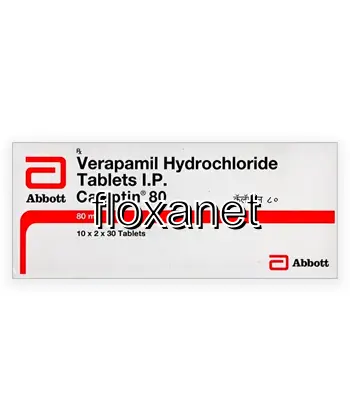| Package | Dosage | Price | Price per Dose | |
|---|---|---|---|---|
| Dosage: 40mg | ||||
| 270 pill | 40mg | CAD102.25 | CAD0.38 | |
| 120 pill | 40mg | CAD56.80 | CAD0.47 | |
| 90 pill | 40mg | CAD47.33 | CAD0.53 | |
| 60 pill | 40mg | CAD37.86 | CAD0.62 | |
| Dosage: 120mg | ||||
| 270 pill | 120mg | CAD231.03 | CAD0.85 | |
| 120 pill | 120mg | CAD115.50 | CAD0.97 | |
| 90 pill | 120mg | CAD94.67 | CAD1.06 | |
| 60 pill | 120mg | CAD75.73 | CAD1.27 | |
| 30 pill | 120mg | CAD49.22 | CAD1.65 | |

Verapamil Hydrochloride Description
Overview of Verapamil Hydrochloride
Verapamil Hydrochloride is a medication widely used to manage various cardiovascular conditions. It belongs to a class of drugs known as calcium channel blockers. These medications work by relaxing the muscles of the heart and blood vessels, which helps improve blood flow and reduce the heart’s workload. Many patients find Verapamil effective for treating conditions such as hypertension, angina, and certain heart rhythm disorders.
Uses and Benefits
The primary purpose of Verapamil Hydrochloride is to lower blood pressure. This can help prevent strokes, heart attacks, and kidney problems. It is also beneficial in relieving angina, which is chest pain caused by reduced blood flow to the heart muscles. For some patients with abnormal heart rhythms, Verapamil can help restore normal rhythm and prevent irregular beats. Users often experience improved physical activity levels and fewer episodes of chest pain when taking this medication regularly.
How to Take Verapamil Hydrochloride
Verapamil Hydrochloride is typically prescribed in tablet form. The dosage varies depending on the specific condition being treated and individual patient factors. It is usually taken orally, with or without food. Patients are advised to follow their healthcare provider’s instructions carefully. Regular monitoring of blood pressure and heart function is important to ensure the medication’s effectiveness and to detect any side effects early.
Possible Side Effects
As with many medications, Verapamil Hydrochloride may cause side effects in some users. Common adverse reactions include dizziness, lightheadedness, and fatigue, especially when starting the medication or increasing the dose. Gastrointestinal issues like nausea, constipation, or stomach discomfort are also reported. Rarely, some individuals may experience swelling of the ankles or feet, or a slow heart rate. Serious side effects are uncommon but require immediate medical attention. It is important for users to inform their healthcare providers about any unusual symptoms or allergic reactions.
Precautions and Interactions
Before starting Verapamil Hydrochloride, it is essential to discuss your medical history with your doctor. Patients with heart failure, low blood pressure, or certain heart rhythm problems should use this medication cautiously. Verapamil can interact with other drugs, such as beta-blockers, certain antifungals, and antibiotics, potentially leading to adverse effects. Pregnant and breastfeeding women should consult their healthcare provider before use. Regular follow-up appointments are recommended to manage and adjust treatment as needed.
Patient Experience and Efficacy
Many users report positive outcomes after beginning Verapamil Hydrochloride therapy. The medication often helps in effectively controlling blood pressure and reducing the frequency and severity of angina attacks. Patients generally tolerate the drug well when dosed appropriately and with proper medical supervision. However, some individuals might experience mild side effects that diminish over time. Overall, Verapamil remains a trusted choice for managing various cardiovascular conditions due to its proven efficacy and safety profile.